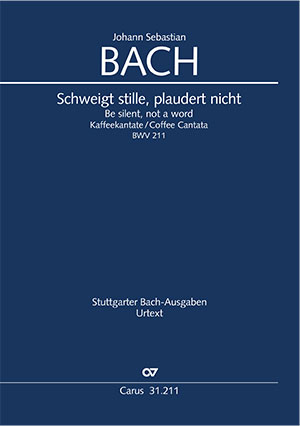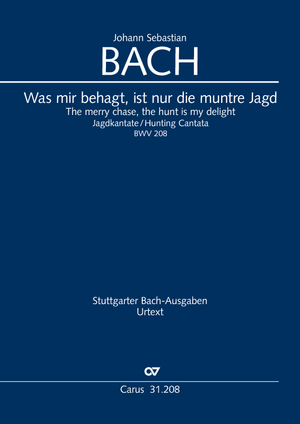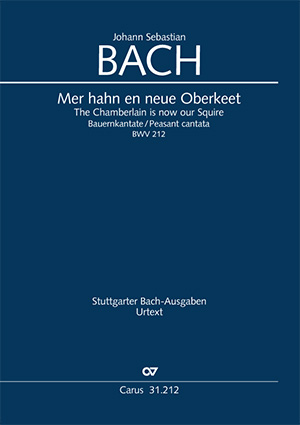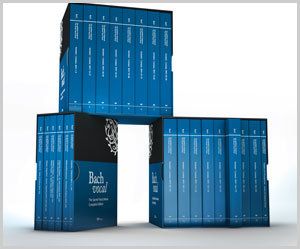
Be silent, not a word (Coffee Cantata)
BWV 211, 1734
In 1729 Bach took over the running of the “Collegium musicum” in Leipzig, founded by Telemann, and continued the tradition of giving concerts at least once a week with this ensemble in Zimmermann’s coffee house or, in the summer, in the coffee garden there. The compositions which were probably composed for performance there include Bach’s famous Coffee Cantata. The cantata is only superficially about daughter Liesgen’s addiction to coffee, in fact it is really about her strict father Schlend rian’s educational efforts, which ultimately remain ineffective – but only in Bach’s cantata. In Picander’s printed libretto it seems as if Schlendrian might prevail, and only in Bach’s cantata, which includes two movements setting additional text, is there a twist to the contrary. Might Bach’s experiences as a father have come into play here?
Purchase
Additional product information
-
Composer
Johann Sebastian Bach
| 1685-1750Johann Sebastian Bach is one of the most important composers of Western music history. He came from a widely ramified musical dynasty, which produced numerous musicians and organists in the Thuringian-Saxon area.
Bach vocal
Ever since Carus-Verlag was founded in 1972, publishing the music of Johann Sebastian Bach has been a special focus for us. In the 2017 Reformation anniversary year we completed the Bach vocal project. Bach's complete sacred vocal works are now available in modern Urtext editions, together with performance material. A complete edition of all the full scores is also available in a high quality box set. Personal details
-
Editor
Uwe Wolf
| 1961Uwe Wolf studied musicology, history, and historical ancillary science at Tübingen and Göttingen. After receiving his doctorate in 1991 he was a research assistant at the Johann-Sebastian-Bach-Institut in Göttingen. From 2004 he worked at the Bach-Archiv Leipzig. There he directed a both research departments, was substantially responsible for the redisigning of the Bach Museum, and he developed the digital Online-Projekt Bach. Since October 2011 he has been the Chief Editor at Carus-Verlag, Stuttgart. He has taught at various universities and also belongs to the editorial boards of several complete editions. Personal details
Frequent questions about this work
 There are no questions and answers available so far or you were unable to find an answer to your specific question about this work? Then click here and send your specific questions to our Customer Services!
There are no questions and answers available so far or you were unable to find an answer to your specific question about this work? Then click here and send your specific questions to our Customer Services!








